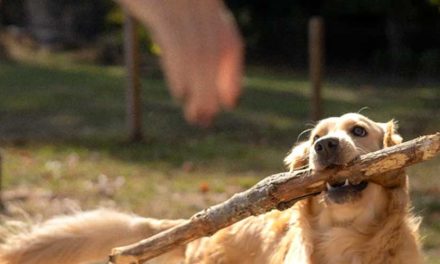If you’re finding that your furry friend isn’t responding to your commands, there may be a few reasons why this is happening.
Dogs, much like humans, can have their off days where they’re not as attentive or willing to obey instructions.
But if this behavior becomes a recurring issue, it’s time to pay more attention and make some changes.
IS YOUR DOG IGNORING YOU?
Primarily, your canine companion might be finding it hard to focus on your commands.
Dogs, particularly younger ones, can easily be distracted by their surroundings.
This lack of attention may make it seem like your dog is defiant, but it’s often just an issue of an over-stimulated environment.
It’s also important to remember that dogs don’t understand language the way we do.
If you’re using different words or phrases for the same command, it could be causing confusion for your pet.
ASSERTIVE BUT NOT AGGRESSIVE
Another interesting aspect to consider is the way we deliver commands.
Dogs are incredibly perceptive and can pick up on our body language and tone of voice.
If your delivery lacks confidence or consistency, your dog might not take your command seriously.
So, how can we bridge this communication gap and ensure our dogs respond to our commands?
LET’S BEGIN
Firstly, try to limit distractions when you give your dog a command.
This might mean practicing commands in a quiet room at home before trying them in a park filled with interesting smells and other animals.
Secondly, consistency is key.
Use the same words for each command and ensure all members of your household are on the same page.
This consistency extends to the rewards you offer, too.
Whether it’s a tasty treat, a belly rub, or a game of fetch, make sure your dog understands what they’re working for.
Thirdly, be patient and keep a positive attitude.
Training a dog takes time, and there will be days when progress seems slow.
Remember, your dog wants to please you.
They’re not being defiant on purpose, and with affectionate guidance, they’ll learn to respond to your commands more reliably.
Lastly, don’t be afraid to seek help from a professional dog trainer if you’re struggling.
They can provide valuable insights into your dog’s behavior and give you strategies for effective communication.
UNIQUE DOG BEHAVIOUR
Remember, every dog is unique and what works for one might not work for another.
It’s about building a strong, trusting relationship with your dog and understanding their needs and motivations.
With patience and consistency, you’ll have a well-behaved four-legged friend who’s always eager to respond to your commands.









